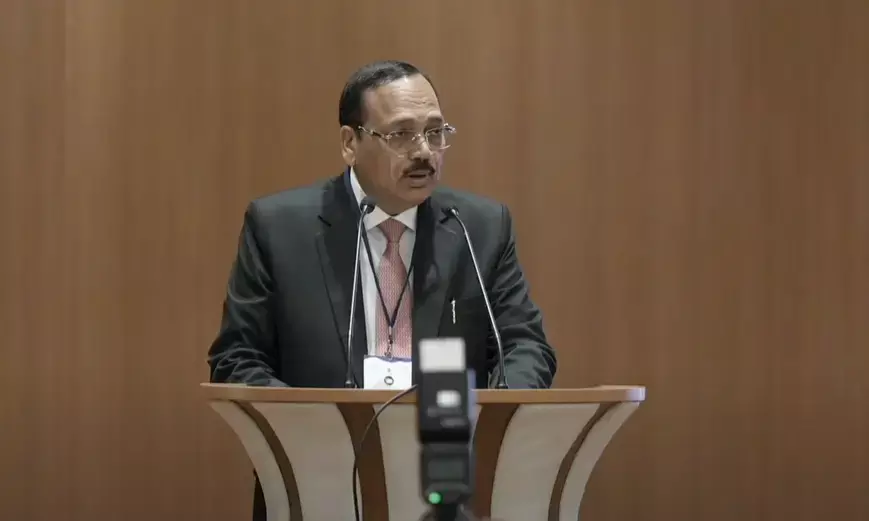Justice Surya Kant: Law Schools Must Leave ‘Ivory Towers’ and Serve Real Social Struggles

Justice Kant delivered the N R Madhava Menon Memorial Lecture, urging reforms to modernise and democratise legal education in India
Supreme Court judge, Justice Surya Kant on Wednesday said the study of law must not be carried out in “ivory towers” detached from society’s struggles but be rooted in the lived experiences of the people it seeks to serve.
Delivering the first Professor (Dr) N R Madhava Menon Memorial Lecture on “Legal and Justice Education @2047: An Agenda for 100 Years of Independence”, Justice Kant said legal education must be modernised, infused with values and ethics, and made accessible to all.
He cautioned that National Law Universities, once seen as centres of innovation and meritocracy, now face critical faculty shortages, while the high cost of legal education has increasingly restricted access to a privileged few. “The dream of community-oriented lawyering and Gram Nyayalayas remains largely unrealised,” he observed.
Stressing the need to democratise legal education, Justice Kant said, “We must break the elitist barriers that have slowly emerged over time.” He added that legal aid clinics must become a compulsory and indispensable part of every law school’s curriculum.
On modernising the system, Justice Kant emphasised integrating interdisciplinary learning and adopting a “digital-first” pedagogy as a vital necessity for the future of justice. “In today’s world, every aspect of legal practice is intertwined with technology, and yet too many law schools continue to cling to outdated approaches,” he said.
He underlined that modernisation must anticipate future challenges and prepare students to meet them head-on. “In 2047, the machine may assist, but the human must answer,” Justice Kant remarked.
Highlighting inclusivity, he warned that rising costs at premier law schools are making the dream of legal education unaffordable for bright students from underprivileged backgrounds. “Regrettably, we have forgotten a simple yet profound truth; that law is not merely a subject to be studied; it is the very foundation upon which society is built and sustained,” he said.
He stressed that access to law and justice should become a lived reality for every citizen, not a privilege for the few.
“For far too long, geographical, economic and linguistic barriers have acted as formidable obstacles, keeping marginalised and vulnerable citizens distant from courts and legal institutions. Economic disadvantage often means that even when legal remedies exist, they remain unaffordable to those who need them the most,” he said.
Underscoring the need to reimagine legal education, CJI Gavai called for expanding its reach through technology, promoting instruction in regional languages, strengthening legal aid, and creating pathways for first-generation learners. The CJI also flagged ethical responsibilities of law schools, saying they carry the duty to instil in every student a respect for constitutional values. He stressed the creation of research institutions to study emerging areas of law.
Acknowledging the transformative impact of the five-year integrated law programme and the National Law School model, CJI Gavai noted that “a recurring criticism is that the model has, perhaps unintentionally, channelled a majority of its graduates towards careers in the corporate sector.” He emphasised that the true power of a legal professional lies “not merely in knowing the law, but in using that knowledge to uphold justice, protect democracy and stand unflinchingly for constitutional values in times of trial.”
Speech At: First Professor (Dr) N R Madhava Menon Memorial Lecture
Date of Speech: September 17, 2025
